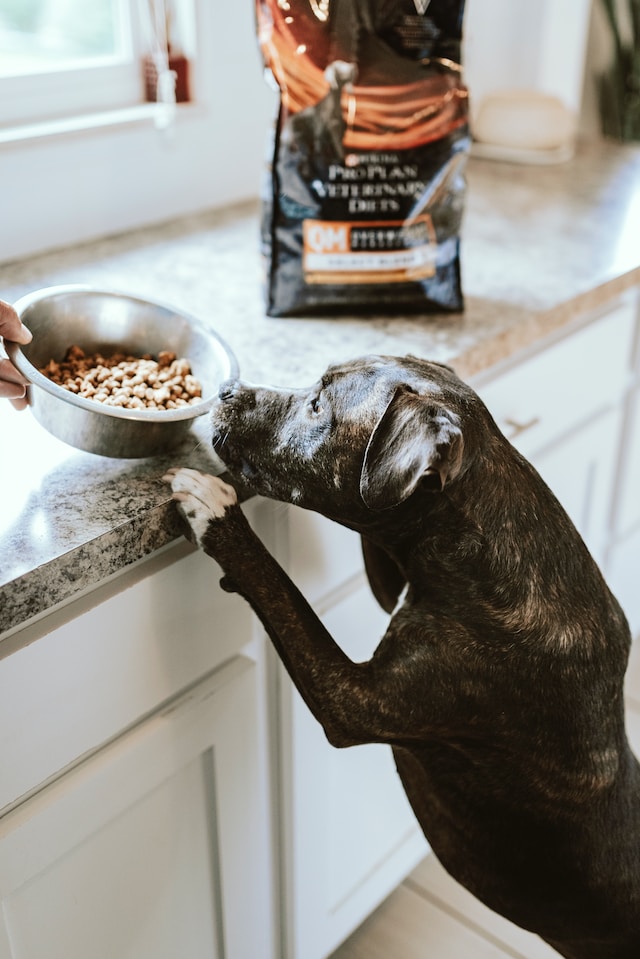As our furry companions age, their dietary needs evolve, necessitating a closer look at their nutrition. Senior dogs, like their human counterparts, require specialized care and attention when it comes to their diet. Providing the best diet for your senior dog can help maintain their health and vitality in their golden years. In this article, we’ll explore the key aspects of diet and nutrition for senior dogs, including the best food choices, special nutritional needs, potential health problems, and the use of supplements.
Don’t Restrict Protein
It’s a widely held misconception that senior dogs should reduce their protein intake to safeguard their aging kidneys. Nevertheless, recent scientific research has questioned this notion. In reality, numerous veterinarians today advocate for maintaining or possibly boosting the protein levels in a senior dog’s diet. Opting for top-notch protein sources like lean meats, fish, and eggs is crucial for preserving muscle mass, bolstering immune function, and promoting overall health in senior dogs.
Consider Calories
Senior dogs tend to be at a higher risk of packing on extra pounds due to reduced physical activity and a slower metabolic rate. To ward off obesity and the potential health issues it brings, it becomes imperative to modify their daily calorie intake. It is advisable to seek guidance from your veterinarian to ascertain the ideal daily calorie needs for your senior dog, considering factors like their age, size, and activity level. Additionally, specialized senior dog diets often offer reduced-calorie choices, which can simplify the process of managing portion sizes. If you prefer homemade senior dog food, carefully regulate the calories per day and avoid feeding them human food meant for seniors to ensure their nutritional needs are met.
Feed for Organ Health
Senior dogs are at an increased risk of developing age-related conditions such as kidney disease, arthritis, and heart problems. Tailoring their diet to support specific organ health is essential. Look for dog food formulated to promote kidney function, joint health, and heart health. These diets often contain lower levels of phosphorus and sodium, as well as added supplements like glucosamine and omega-3 fatty acids.
Make Food Palatable for Senior Dogs
As dogs age, their sense of smell and taste may diminish, leading to a decreased interest in food. To entice your senior dog to eat, consider warming their food slightly to enhance its aroma. Mixing in small amounts of wet or canned food can also make the meal more appealing. Be mindful of any dental issues your senior dog may have, and opt for softer kibble or provide dental treats to maintain oral health.
Do Senior Dogs Have Special Nutritional Needs?
Yes, senior dogs do have special nutritional needs. While protein requirements may increase, they often need fewer calories overall. Senior-specific dog foods are designed to address these needs. They typically contain higher levels of certain vitamins, minerals, and antioxidants to support aging organs and immune function. It’s advisable to switch to a senior dog food around the age of 7, but this may vary depending on your dog’s breed and health.
What Health Problems Can Affect a Senior Dog’s Diet?
Several health problems can impact a senior dog’s diet, including:
- Dental Issues: Oral issues in senior dogs, particularly those with dental problems or no teeth, can result in discomfort while consuming kibble, ultimately causing reduced food consumption. Consistent dental examinations and the availability of softer food alternatives can be beneficial for senior dogs with dental issues, as well as for those without teeth, ensuring they receive suitable nutrition.
- Gastrointestinal Disorders: Conditions like pancreatitis or irritable bowel syndrome may require a special diet. Consult your vet for guidance.
- Kidney Disease: Reduced protein and phosphorus levels are typically recommended for dogs with kidney disease to reduce the strain on the kidneys.
- Arthritis: Joint supplements like glucosamine and chondroitin can be beneficial for senior dogs with arthritis.
Should Senior Dogs Take Supplements?
The need for supplements varies from dog to dog. While high-quality senior dog foods are formulated to meet most of their nutritional needs, some seniors may benefit from supplements. Consult your veterinarian before adding supplements to your dog’s diet. Common supplements for senior dogs include omega-3 fatty acids for joint health, glucosamine and chondroitin for arthritis, and antioxidants like vitamins C and E for overall well-being.
In conclusion, providing the best diet and nutrition for senior dogs is essential for maintaining their health, energy, and quality of life as they age. Understanding their specific needs, adjusting their diet accordingly, and consulting with your veterinarian are key steps in ensuring that your beloved senior dog enjoys their golden years to the fullest. Remember that every dog is unique, so tailor their diet to their individual health requirements and preferences for a happy and healthy life.


4 thoughts on “Diet and Nutrition for Senior Dogs”